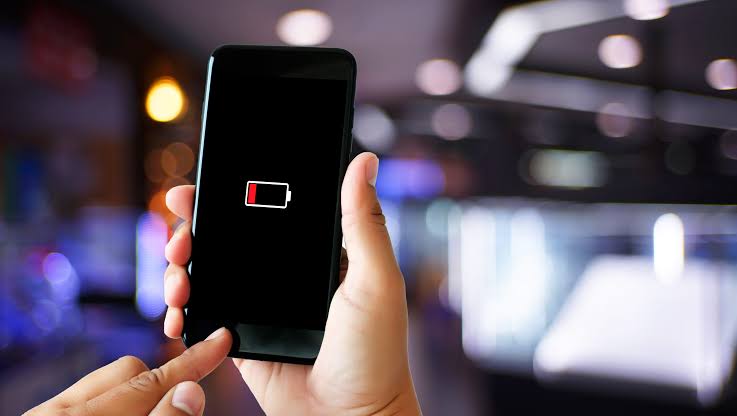In today's fast-paced digital world smartphones have become indispensable tools for communication, work entertainment and more. As these devices grow more powerful and feature-rich, their reliance on battery life and efficient charging technology has also increased.
This article delves into the significance of smartphone battery life. Additionally it explores the advancements in charging technology. It also examines their impact on user experience and overall device performance.
The Role of Battery Life in User Experience
Daily Dependence on Smartphones
Modern smartphones are multifunctional devices that users rely on for various tasks. From making calls and sending messages to streaming videos. Browsing the internet. The ability to perform these tasks throughout day without frequent recharging is crucial for maintaining productivity and convenience. Long-lasting battery ensures that users can stay connected and active without constant worry of their device dying at critical moments.
Impact on Mobility and Convenience
Extended battery life enhances mobility. It allows users to travel commute, or work remotely without being tethered to a charging outlet. This is especially important for professionals. They need to stay connected during long meetings. Business trips or fieldwork. Smartphone with robust battery life reduces need to carry around bulky power banks. Or search for charging stations, offering greater freedom and flexibility.
Factors Influencing Smartphone Battery Life
Battery Capacity and Technology
Battery capacity measured in milliampere-hours (mAh), is key determinant of smartphone's battery life. Higher capacity batteries can store more energy. This enables longer usage times. However advancements in battery technology such as lithium-polymer (Li-Po) and lithium-ion (Li-Ion) batteries have played significant role in improving energy density and efficiency. These advancements allow for slimmer designs without compromising battery life.
Power Management and Optimization
Smartphone manufacturers employ various power management techniques and software optimizations to extend battery life. These include adaptive battery features that prioritize power for frequently used apps. Background process restrictions and efficient power-saving modes. Additionally advancements in processors and display technology, such as more energy-efficient chipsets and OLED screens contribute to reduced power consumption and prolonged battery endurance.
Evolution of Charging Technology
Fast Charging
Fast charging technology has revolutionized the way users recharge their smartphones, significantly reducing the time required to replenish the battery. Technologies such as Qualcomm Quick Charge, USB Power Delivery (USB-PD), and proprietary solutions like Apple's Fast Charge and OnePlus' Warp Charge enable rapid charging speeds by increasing the power output delivered to the battery. Fast charging provides users with the convenience of quickly topping up their battery during short breaks or commutes.
Wireless Charging
Wireless charging offers a cable-free alternative for recharging smartphones. By using electromagnetic fields to transfer energy between a charging pad and the device, wireless charging eliminates the need for physical connectors. This technology enhances convenience, allowing users to simply place their phones on a charging pad without the hassle of plugging in cables. Moreover, the proliferation of Qi wireless charging standards has led to greater compatibility across different devices and brands.
Reverse Wireless Charging
Reverse wireless charging, or power sharing, enables smartphones to act as wireless chargers for other devices, such as earbuds, smartwatches, or even other smartphones. This feature adds an extra layer of versatility to smartphones, allowing users to share power on the go without needing additional chargers or cables. Reverse wireless charging is particularly useful in emergency situations where a user may need to charge another device in a pinch.
Future Trends in Battery and Charging Technology
Solid-State Batteries
Solid-state batteries represent the next frontier in battery technology, promising higher energy densities, faster charging times, and improved safety compared to traditional lithium-ion batteries. By replacing the liquid electrolyte with a solid electrolyte, solid-state batteries reduce the risk of leaks and thermal runaway, making them more stable and efficient. Although still in the development stage, solid-state batteries hold the potential to significantly enhance smartphone battery life and performance.
Supercapacitors
Supercapacitors are another emerging technology with the potential to revolutionize smartphone charging. Unlike traditional batteries that store energy through chemical reactions, supercapacitors store energy through electrostatic fields, enabling rapid charging and discharging cycles. While current supercapacitors lack the energy density of lithium-ion batteries, ongoing research aims to combine their fast-charging capabilities with higher energy storage, potentially transforming the way smartphones are charged.
AI-Powered Battery Management
Artificial intelligence (AI) is being increasingly integrated into smartphone battery management systems to optimize power consumption and extend battery life. AI algorithms analyze user behavior and usage patterns to make real-time adjustments, such as dynamically adjusting screen brightness, managing background processes, and predicting battery drain. These intelligent optimizations ensure that battery resources are used efficiently, providing a longer-lasting and more reliable user experience.
Conclusion
The importance of smartphone battery life and charging technology cannot be overstated in today's digitally connected world. Long-lasting battery life enhances user experience by providing uninterrupted access to essential functions and reducing the need for frequent recharging. Advances in fast charging, wireless charging, and emerging technologies like solid-state batteries and supercapacitors promise to further improve the convenience and efficiency of smartphone use. As technology continues to evolve, users can expect even more innovative solutions that will enhance the longevity, safety, and performance of smartphone batteries, ultimately leading to a more seamless and satisfying mobile experience.
